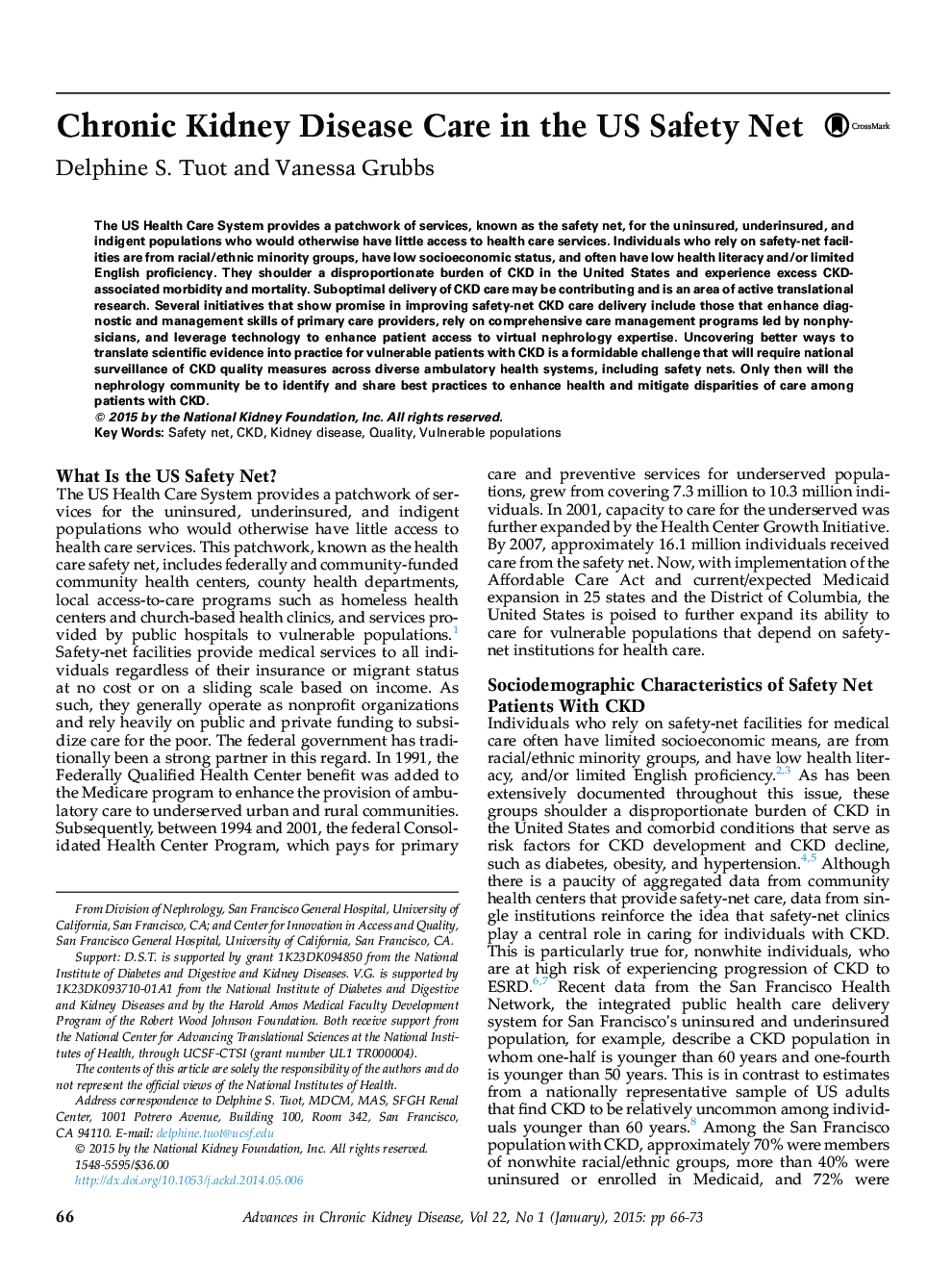| Article ID | Journal | Published Year | Pages | File Type |
|---|---|---|---|---|
| 3846549 | Advances in Chronic Kidney Disease | 2015 | 8 Pages |
Abstract
The US Health Care System provides a patchwork of services, known as the safety net, for the uninsured, underinsured, and indigent populations who would otherwise have little access to health care services. Individuals who rely on safety-net facilities are from racial/ethnic minority groups, have low socioeconomic status, and often have low health literacy and/or limited English proficiency. They shoulder a disproportionate burden of CKD in the United States and experience excess CKD-associated morbidity and mortality. Suboptimal delivery of CKD care may be contributing and is an area of active translational research. Several initiatives that show promise in improving safety-net CKD care delivery include those that enhance diagnostic and management skills of primary care providers, rely on comprehensive care management programs led by nonphysicians, and leverage technology to enhance patient access to virtual nephrology expertise. Uncovering better ways to translate scientific evidence into practice for vulnerable patients with CKD is a formidable challenge that will require national surveillance of CKD quality measures across diverse ambulatory health systems, including safety nets. Only then will the nephrology community be to identify and share best practices to enhance health and mitigate disparities of care among patients with CKD.
Related Topics
Health Sciences
Medicine and Dentistry
Nephrology
Authors
Delphine S. Tuot, Vanessa Grubbs,
